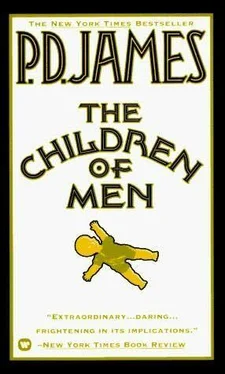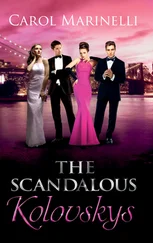“No, old boy, I’ve tried. They’ve all got excuses. Don’t like evening work. Too busy. Not their period—don’t think it’s only historians who go in for that crap. Can do one session but not four. It’s only one hour, Thursdays, six to seven. And you won’t have to bother with preparation, I’ve only set four books and you probably know them by heart: Middlemarch, Portrait of a Lady, Vanity Fair, Cranford. Only fourteen in the class, fifty-year-old women mainly. They should be fussing round their grandchildren, so they’ve time on their hands, you know how it is. Charming ladies, if a little conventional in their taste. You’ll love them. And they’ll be tickled pink to have you. The comfort of culture, that’s what they’re after. Your cousin, our esteemed Warden, is very keen on the comfort of culture. All they want is to escape temporarily into a more agreeable and permanent world. We all do it, dear boy, only you and I call it scholarship.”
But there had been fifteen students, not fourteen. She had come in two minutes late and had quietly taken her seat at the back of the group. Then as now he had seen her head outlined against carved wood and lit by candles. When the last intake of undergraduates had gone down, hallowed college rooms had been opened to mature, part-time students, and the class had been held in an agreeable, panelled lecture room at Queen’s College. She had listened, apparently attentively, to his preliminary discourse on Henry James and had at first taken no part in the ensuing general discussion until a large woman in the front row began extravagantly praising Isabel Archer’s moral qualities and sentimentally lamenting her undeserved fate.
The girl had suddenly said: “I don’t see why you should particularly pity someone who was given so much and made such poor use of it. She could have married Lord Warburton and done a great deal of good to his tenants, to the poor. All right, she didn’t love him, so there was an excuse and she had higher ambitions for herself than marriage to Lord Warburton. But what? She had no creative talent, no job, no training. When her cousin made her rich, what did she do? Gad round the world with Madame Merle, of all people. And then she marries that conceited hypocrite and goes in for Thursday salons gorgeously dressed. What happened to all the idealism? I’ve got more time for Henrietta Stackpole.”
The woman had protested: “Oh, but she’s so vulgar!”
“That’s what Mrs. Touchett thinks, so does the author. But at least she has talent, which Isabel hasn’t, and she uses it to earn her living, and support her widowed sister.” She added: “Isabel Archer and Dorothea both discard eligible suitors to marry self-important fools, but one sympathizes more with Dorothea. Perhaps this is because George Eliot respects her heroine and, at heart, Henry James despises his.”
She might, Theo had suspected, have been relieving boredom by deliberate provocation. But, whatever her motive, the ensuing argument had been noisy and lively and for once the remaining thirty minutes had passed quickly and agreeably. He had been sorry and a little aggrieved when, the following Thursday, watched for, she had failed to appear.
The connection made and curiosity appeased, he could sit back in peace and listen to the second anthem. It had been the custom at Magdalen for the last ten years to play a recorded anthem during Evensong. Theo saw from the printed service sheet that this afternoon there was to be the first of a series of fifteenth-century English anthems, beginning with two by William Byrd, “Teach Me, O Lord” and “Exult Thyself, O God.” There was a brief anticipatory silence as the informator choristarum bent down to switch on the tape. The voices of boys, sweet, clear, asexual, unheard since the last boy chorister’s voice had broken, soared and filled the chapel. He glanced across at the girl, but she was sitting motionless, her head thrown back, her eyes fixed on the rib vaulting of the roof, so that all he could see was the candle-lit curve of her neck. But at the end of the row was a figure he suddenly recognized: old Martindale, who had been an English fellow on the eve of retirement when he himself was in his first year. Now he sat perfectly still, his old face uplifted, the candlelight glinting on the tears which ran down his cheeks in a stream so that the deep furrows looked as if they were hung with pearls. Old Marty, unmarried, celibate, who all his life had loved the beauty of boys. Why, Theo wondered, did he and his like come week after week to seek this masochistic pleasure? They could listen to the recorded voices of children perfectly well at home, so why did it have to be here, where past and present fused in beauty and candlelight to reinforce regret? Why did he himself come? But he knew the answer to that question. Feel, he told himself, feel, feel, feel. Even if what you feel is pain, only let yourself feel.
The woman left the chapel before him, moving swiftly, almost surreptitiously. But when he stepped out into the cool air, he was surprised to find her obviously waiting.
She came up beside him and said: “Could I please speak to you? It’s important.”
From the ante-chapel the bright light streamed out into the late-afternoon dusk and for the first time he saw her clearly. Her hair, dark and luscious, a rich brown with flecks of gold, was brushed back and disciplined into a short, thick pleat. A fringe fell over a high, freckled forehead. She was light-skinned for someone so dark-haired, a honey-coloured woman, long-necked with high cheekbones, wide-set eyes whose colour he couldn’t determine under strong straight brows, a long narrow nose, slightly humped, and a wide, beautifully shaped mouth. It was a pre-Raphaelite face. Rossetti would have liked to have painted her. She was dressed in the current fashion for all but Omegas—a short, fitted jacket and, beneath it, a woollen skirt reaching to mid-calf below which he could see the highly coloured socks which had become this year’s craze. Hers were bright yellow. She carried a leather sling bag over her left shoulder. She was gloveless and he could see that her left hand was deformed. The middle and forefinger were fused into a nailless stump and the back of the hand was grossly swollen. She held it cradled in her right as if comforting or supporting it. There was no effort to hide it. She might even have been proclaiming her deformity to a world which had become increasingly intolerant of physical defects. But at least, he thought, she had one compensation. No one who was in any way physically deformed, or mentally or physically unhealthy, was on the list of women from whom the new race would be bred if ever a fertile male was discovered. She was, at least, saved from the six-monthly, time-consuming, humiliating re-examinations to which all healthy females under forty-five were subjected.
She spoke again, more quietly: “It won’t take long. But please, I have to talk to you, Dr. Faron.”
“If you need to.” He was intrigued, but he couldn’t make his voice welcoming.
“Perhaps we could walk round the new cloisters.”
They turned together in silence. She said: “You don’t know me.”
“No, but I remember you. You were at the second of the classes I took for Dr. Seabrook. You certainly enlivened the discussion.”
“I’m afraid I was rather vehement.” She added, as if it were important to explain: “I do very much admire The Portrait of a Lady.”
“But presumably you haven’t arranged this interview to reassure me about your literary taste.”
As soon as the words were spoken he regretted them. She flushed, and he sensed an instinctive recoil, a loss of confidence in herself, and perhaps in him. The naivety of her remark had disconcerted him, but he need not have responded with such hurtful irony. Her unease was infectious. He hoped that she wasn’t proposing to embarrass him with personal revelations or emotional demands. It was difficult to reconcile that articulate confident debater with her present almost adolescent gaucherie. It was pointless to try to make amends and for half a minute they walked in silence.
Читать дальше












